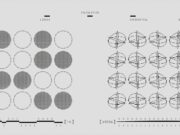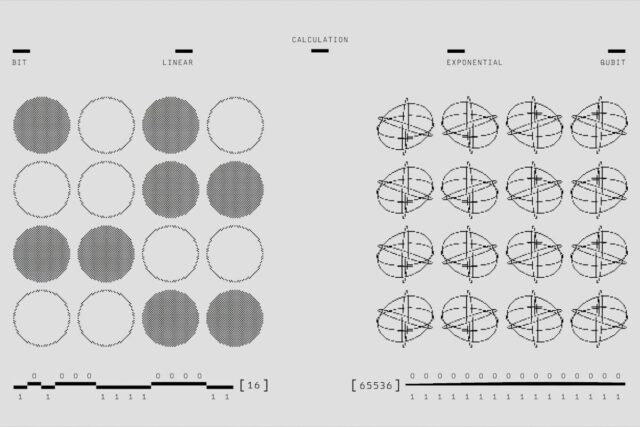Quantum AI: Elon Musk’s Vision for the Future of Technology is rapidly emerging as one of the most transformative forces in technology. Elon Musk, the CEO of Tesla, SpaceX, and Neuralink, is pushing the boundaries of artificial intelligence (AI) and quantum computing. His vision for a future dominated by quantum AI is nothing short of revolutionary. In this blog post, we’ll explore how Quantum AI Elon Musk is driving the convergence of AI and quantum computing, and what it means for the future of industries like automotive, space exploration, and healthcare.
Introduction to Quantum AI and Its Potential
What is Quantum AI and How Does It Work?
At its core, quantum AI combines two groundbreaking technologies: quantum computing and artificial intelligence. Quantum computing uses quantum bits (qubits) to process information in ways that classical computers cannot. These qubits can exist in multiple states simultaneously, allowing for faster and more complex problem-solving. AI benefits from quantum computing’s ability to solve highly intricate problems at an unprecedented speed.
In quantum AI, machine learning algorithms can leverage quantum computers’ massive processing power. This means tasks such as data analysis, pattern recognition, and decision-making could be significantly faster and more accurate. By combining these two fields, the possibilities for innovation are endless.
The Role of Quantum Computing in AI Advancements
Quantum computing is a game-changer for AI. Traditional AI relies on classical computing, which can be slow and limited in handling large datasets. Quantum computing, however, has the potential to drastically enhance AI capabilities. With faster processing power, quantum computers can help AI models train more effectively, reducing the time needed to learn from data.
This synergy between quantum computing and AI is vital for advancements in several fields, including robotics, cybersecurity, and drug discovery. Quantum computers can process more data at once, accelerating the learning process of AI systems and enabling them to make smarter decisions.
Elon Musk’s AI Innovations: From Tesla to Neuralink
Tesla’s AI Integration: Revolutionizing the Automotive Industry
Elon Musk has been a pioneer in integrating AI into Tesla’s vehicles. Tesla’s self-driving cars are powered by advanced AI algorithms that analyze data from cameras, sensors, and radar to navigate roads safely. With AI, Tesla’s vehicles are continuously learning from their surroundings, improving their performance over time.
But Musk’s ambitions don’t stop there. Quantum computing could significantly improve Tesla’s AI models in the future. By utilizing quantum AI, Tesla could enhance its self-driving technology to make faster, more accurate decisions, even in complex and unpredictable environments. This would bring Tesla’s AI one step closer to achieving fully autonomous vehicles.
SpaceX and AI: Changing the Landscape of Space Exploration
SpaceX, Musk’s private aerospace company, is also at the forefront of AI innovation. The company uses AI-powered systems to optimize rocket launches, spacecraft navigation, and mission planning. SpaceX’s AI-driven technologies help make space exploration safer and more efficient.
In the future, quantum AI could take SpaceX’s technology to new heights. By applying quantum computing’s speed and power to AI systems, SpaceX could improve rocket performance, enhance spacecraft communication, and even make autonomous decision-making in space missions a reality.
Neuralink: AI’s Impact on the Brain-Computer Interface
Neuralink, Musk’s venture into brain-machine interfaces, is another example of his commitment to AI. This company is working on developing technologies that can connect the human brain to computers. Using AI algorithms, Neuralink is focused on enhancing brain functionality and treating neurological disorders.
As quantum computing advances, it could allow Neuralink’s AI systems to process brain signals more efficiently. This could lead to breakthroughs in treating conditions like Alzheimer’s, Parkinson’s disease, and spinal cord injuries, among others.
The Synergy Between Quantum Computing and Artificial Intelligence
Quantum AI Breakthroughs: Transforming Machine Learning
The combination of quantum computing and machine learning could lead to quantum AI breakthroughs. In traditional machine learning, algorithms must be trained on large datasets, a process that can take a lot of time and computational power. With quantum AI, quantum computers could analyze vast datasets much faster and more efficiently, leading to rapid advancements in machine learning techniques.
Quantum AI has the potential to transform industries like healthcare, where machine learning can be used to identify new drugs or predict patient outcomes. By leveraging the power of quantum computing, machine learning models could become more accurate and efficient, ultimately improving decision-making and outcomes.
How Quantum Systems Enhance AI Models
Quantum systems can enhance AI models by speeding up computations and enabling the processing of exponentially larger datasets. Traditional computers can only handle a limited amount of data at once, but quantum computers can perform calculations on many different possibilities simultaneously. This means that AI algorithms powered by quantum computing could solve problems that were previously out of reach.
The potential applications of quantum AI in fields like drug discovery, financial modeling, and climate change prediction are immense. With quantum computing, AI systems could analyze complex datasets more effectively, providing new insights and solutions to some of the world’s most pressing problems.
Exploring the Future of AI and Quantum Computing
The Role of AI and Quantum Computing in Healthcare
The integration of AI and quantum computing could revolutionize healthcare. Quantum AI could enhance medical imaging, predict patient outcomes more accurately, and accelerate drug discovery. AI algorithms trained on quantum computers could process large datasets from medical records, research studies, and clinical trials much faster than traditional methods.
This would lead to faster diagnosis, better treatment plans, and ultimately, improved patient care. Quantum AI could also help in developing personalized medicine, tailoring treatments to individual patients based on their genetic makeup and health data.
Elon Musk’s AI Vision: Shaping Tomorrow’s World
Elon Musk’s vision for AI and quantum computing is shaping the future of technology. His ventures—Tesla, SpaceX, and Neuralink—are all examples of how AI can be used to solve complex problems and push the boundaries of what’s possible. As quantum computing advances, Musk is likely to continue incorporating it into his companies’ products, making his vision of a future powered by quantum AI a reality.
The Next Big Steps: AI, Quantum Computing, and Space Technology
Looking ahead, the next frontier in AI and quantum computing will likely be in space exploration. SpaceX is already leveraging AI to enhance its space missions, but the integration of quantum AI could open up new possibilities. Imagine AI systems that can make decisions in real-time, even in the vast, unpredictable expanse of space.
In the coming years, quantum AI could allow for faster interplanetary travel, improved satellite communication, and better understanding of cosmic phenomena. Elon Musk’s companies are positioning themselves to be at the forefront of these innovations.
Conclusion: How Elon Musk is Shaping the Quantum AI Revolution
Elon Musk is playing a pivotal role in the quantum AI revolution. Through his work with Tesla, SpaceX, and Neuralink, Musk is driving the integration of AI and quantum computing to solve some of the world’s most challenging problems. As quantum computing continues to advance, Musk’s vision of a future powered by quantum AI is becoming increasingly realistic.
By merging the best of AI and quantum computing, Musk is paving the way for a smarter, more efficient future. With applications in self-driving cars, space exploration, and healthcare, the possibilities are endless.
Comparison of Current vs Future Technologies with Quantum AI
| Technology | Current Use | Future Potential with Quantum AI |
| Tesla AI | Autonomous driving | Faster decision-making, enhanced safety |
| SpaceX AI | Rocket navigation & mission planning | Quantum-powered autonomous space missions |
| Neuralink AI | Brain-computer interfaces | Improved brain signal processing & healthcare |
Frequently Asked Questions
1. How does quantum AI differ from traditional AI?
Quantum AI combines quantum computing with machine learning, allowing for faster and more efficient processing of large datasets. Traditional AI relies on classical computing, which is slower in comparison.
2. What industries could benefit from quantum AI?
Industries like healthcare, automotive, space exploration, and finance could benefit greatly from the advancements of quantum AI. It can enhance data analysis, decision-making, and predictive modeling.
3. How is Elon Musk integrating AI into his companies?
Musk integrates AI into Tesla for self-driving cars, SpaceX for mission optimization, and Neuralink for brain-machine interfaces. The future potential includes quantum AI to further enhance these technologies.
4. What is the future of AI and quantum computing?
The future of AI and quantum computing lies in their integration. Together, they could solve some of the most complex problems in areas like healthcare, space exploration, and climate change.























